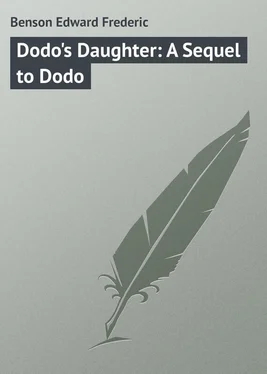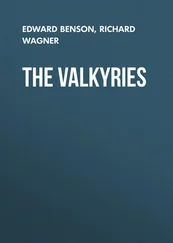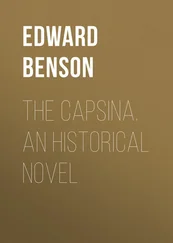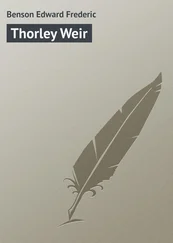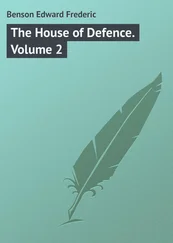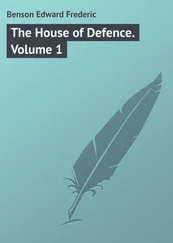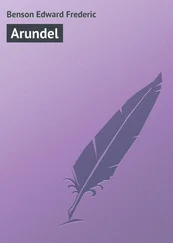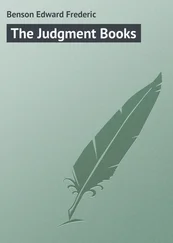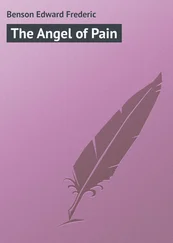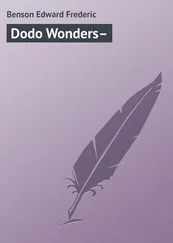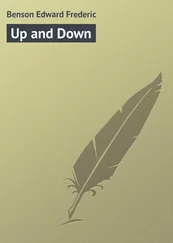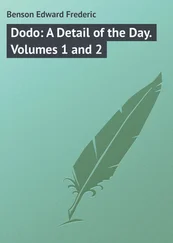Edward Benson - Dodo's Daughter - A Sequel to Dodo
Здесь есть возможность читать онлайн «Edward Benson - Dodo's Daughter - A Sequel to Dodo» — ознакомительный отрывок электронной книги совершенно бесплатно, а после прочтения отрывка купить полную версию. В некоторых случаях можно слушать аудио, скачать через торрент в формате fb2 и присутствует краткое содержание. Издательство: Иностранный паблик, Жанр: foreign_prose, Зарубежные любовные романы, на английском языке. Описание произведения, (предисловие) а так же отзывы посетителей доступны на портале библиотеки ЛибКат.
- Название:Dodo's Daughter: A Sequel to Dodo
- Автор:
- Издательство:Иностранный паблик
- Жанр:
- Год:неизвестен
- ISBN:нет данных
- Рейтинг книги:3 / 5. Голосов: 1
-
Избранное:Добавить в избранное
- Отзывы:
-
Ваша оценка:
- 60
- 1
- 2
- 3
- 4
- 5
Dodo's Daughter: A Sequel to Dodo: краткое содержание, описание и аннотация
Предлагаем к чтению аннотацию, описание, краткое содержание или предисловие (зависит от того, что написал сам автор книги «Dodo's Daughter: A Sequel to Dodo»). Если вы не нашли необходимую информацию о книге — напишите в комментариях, мы постараемся отыскать её.
Dodo's Daughter: A Sequel to Dodo — читать онлайн ознакомительный отрывок
Ниже представлен текст книги, разбитый по страницам. Система сохранения места последней прочитанной страницы, позволяет с удобством читать онлайн бесплатно книгу «Dodo's Daughter: A Sequel to Dodo», без необходимости каждый раз заново искать на чём Вы остановились. Поставьте закладку, и сможете в любой момент перейти на страницу, на которой закончили чтение.
Интервал:
Закладка:
"Oh, Berts, I'm so sorry," she said. "You are playing so well!"
"I know. Esther was in the light, Hugh."
"Oh rather, lot, of course," said Hugh.
Nadine took no active share. She was lying on the grass at the side of the court with Tommy, and was reading "Pride and Prejudice" aloud. When Esther had a few moments to spare she came to listen. John joined the reading party, and wore an appreciative smile.
Nadine came to the end of a chapter.
"Yes, Art, oh, great Art," she said, shutting the book, "but I am not enchained. It corresponds to Madame Bovary, or the Dutch pictures. It is beautifully done; none but an artist could have done it. But I find a great deal of it dull."
John's smile became indulgent.
"Ah, yes," he said, "but what you call dull, I expect I should call subtle. Surely, Nadine, you see how marvelous."
Esther groaned.
"John, you make me feel sick," she began.
"Balls, please," said Hugh.
Esther sprang up.
"Yes, Hugh, I'll get them," she said. "Aren't those two marvelous?" she added to Nadine.
"John is more marvelous," said Nadine. "John, I wish you would get drunk or cheat at cards. It would do you a world of good to lose a little of your self-respect. You respect yourself far too much. Nobody is so respectable as you think yourself. We were talking of you last night: I wish you had been there to hear; but you had gone to bed with your camomile tea. Perhaps you think camomile tea subtle also, whereas I should only find it dull."
"I think you are quibbling with words," he said. "But I, too, wish I had heard you talking last night. I always welcome criticism so long as it is sincere."
"It was quite sincere," said Nadine, "you may rest assured. It was unanimous, too; we were all agreed."
John found this not in the least disconcerting.
"I am not so sure that it matters then," he said. "When several people are talking about one thing – you tell me you were talking about me – they ought to differ. If they all agree, it shows they only see one side of what they are discussing."
Nadine sat up, while Tommy buried his dissipated face in his hands.
"We only saw one side of you," she said, "and that was the obvious one. You will say that it was because we were dull. But since you like criticism you shall know. We all thought you were a prig. Esther said you would be distressed if we thought differently. She said you like being a prig. Do tell me: is it pleasant? Or I expect what I call prig, you call cultured. Are you cultured?"
Tommy sat up.
"Come and listen, Esther," he shouted. "Those glorious athletes can pick up the balls themselves for a minute."
Esther emerged from a laurel bush triumphant with a strayed reveler.
"Oh, is Nadine telling John what she thinks?" she asked.
"Nadine is!" said Tommy.
Nadine meantime collected her thoughts. When she talked she ascertained for herself beforehand what she was going to say. In that respect she was unlike her mother, who ascertained what she thought when she found herself saying it. But the result in both cases had the spontaneous ring.
"John, somehow or other you are a dear," she said, "though we find you detestable. You think, anyhow. That gives you the badge. Anybody who thinks – "
Hugh, like Mr. Longfellow with his arrow, flung his racquet into the air, without looking where it went. He had a moment previously sent a fast drive into the corner of the court, which raised whitewash in a cloud, and won him the set.
"Nadine, are you administering the oath of the clan?" he said. "You haven't consulted either Berts or me."
Nadine looked pained.
"Did you really think I was admitting poor John without consulting you?" she said. "Though he complies with the regulations."
Hugh, streaming with the response that a healthy skin gives to heat, threw himself down on the grass.
"I vote against John!" he said. "I would sooner vote for Seymour. And I won't vote for him. Also, it is surely time to go and bathe."
"I don't know what you are all talking about," said John. "I daresay it doesn't matter. But what is the clan?"
Hugh sat up.
"The clan is nearly prigs," he said, "but not quite. But you are, quite. We are saved because we do laugh at ourselves – "
"And you are not saved because you don't," added Nadine.
"And is the whole object of the clan to think?" asked John.
"No, that is the subject. Also you speak as if we all had said, 'Let there be a clan, and it was so,'" said Nadine. "You mustn't think that. There was a clan, and we discovered it, like Newton and the orange."
"Apple, surely," said John.
Nadine looked brilliantly round.
"I knew he would say that," she said. "You see you correct what I say, whereas a clansman would be content to understand what I mean."
"Bishop Algie is clan, by the way," said Hugh. "I went down to bathe before breakfast, and found him kneeling down on the beach saying his prayers. That is tremendously clannish."
"I don't see why," said John.
Esther sighed.
"No, of course you wouldn't see," she said.
"Try him with another," said Nadine.
Esther considered.
"Attend, John," she said. "When the last Stevenson letters came out, Berts bought them and looked at one page. Then he took a taxi to Paddington and took a return ticket to Bristol."
"Swindon," said Berts.
"The station is immaterial, so long as it was far away. I daresay Swindon is quite as far as Bristol."
John smiled.
"There you are quite wrong," he said. "Swindon comes before Bath, and Bristol after Bath. No doubt it does not matter, though it is as well to be accurate."
Esther looked at him with painful anxiety.
"But don't you see why Berts went to Swindon or Bristol?" she said. "Poor dear, you do see now. That is hopeless. You ought to have felt. To reason out what should have been a flash, is worse than not to have understood at all."
John, again like all other prigs, was patient with those not so gifted as himself.
"I daresay you will explain to me what it all amounts to," he said. "All I am certain of is that Berts wanted to read Stevenson's letters and so got into a train, where he would be undisturbed. Wouldn't it have answered the same purpose if he had taken a room at the Paddington hotel?"
Nadine turned to Berts.
"Oh, Berts, that would have been rather lovely," she said.
"Not at all," said he. "I wanted the sense of travel."
John got up.
"Then I should have recommended the Underground," he said. "You could have gone round and round until you had finished. It would have been much cheaper."
Nadine waved impotent arms of despair.
"Now you have spoiled it," she said. "There was a possibility in the Paddington hotel, which sounds so remote. But the Underground! You might as well say, why do I bathe, I who cannot swim? I can get clean in a bath, though I only get dirty in the sea, and if I want the salt I can put Tiddle-de-wink salt or whatever the name is in my bath – "
"Tidman," said John.
"I am sure you are right, though who cares? I am knocked down by cold waves, I am cut by stones on my soles. I am pinched by crabs and homards , at least I think I am; the wind gnaws at my bones, and my hair is as salt as almonds. Between my toes is sand, and bits of seaweed make me a plaster, and my stockings fall into rock-pools, but do I go with rapture to have a bath in the bathroom? I hate washing. There is nothing so sordid as to wash my face, except to brush my teeth. But to bathe in the sea makes me think: it gives me romance. Poor John, you never get romance. You amass information, and make a Blue Book. But we all, we make blue mountains, which we never reach. If we reached them they would probably turn out to be green. As it is, they are always blue, because they are beyond. It is suggestion that we seek, not attainment. To attain is dull, to aspire is the sugar and salt of life. Don't you see? To realize an ideal is to lose the ideal. It is like a man growing rich: he never sees his sovereigns: when he has gained them he flings them forth again into something further. If he left them in a box, the real sovereigns, under his bed, what chance would there be for him to grow rich? But out they go, he never uses them, except that he makes them breed. It is the same with the riches of the mind. An idea, an ideal is yours. Do you keep it? Personally you do. But we, no. We invest it again. It is to our credit, at this bank of the mind. We do not hoard it, and spend it piecemeal. We put it into something else. What I have perceived in music, I put into plays: what I have perceived in plays I put into pictures. I never let it remain at home. But when I shall be a millionaire of the mind, what, what then? Yes, that makes me pause. Perhaps it will all be converted, as they convert bonds, is it not, and I shall put it all into love. Who knows, La-la."
Читать дальшеИнтервал:
Закладка:
Похожие книги на «Dodo's Daughter: A Sequel to Dodo»
Представляем Вашему вниманию похожие книги на «Dodo's Daughter: A Sequel to Dodo» списком для выбора. Мы отобрали схожую по названию и смыслу литературу в надежде предоставить читателям больше вариантов отыскать новые, интересные, ещё непрочитанные произведения.
Обсуждение, отзывы о книге «Dodo's Daughter: A Sequel to Dodo» и просто собственные мнения читателей. Оставьте ваши комментарии, напишите, что Вы думаете о произведении, его смысле или главных героях. Укажите что конкретно понравилось, а что нет, и почему Вы так считаете.
